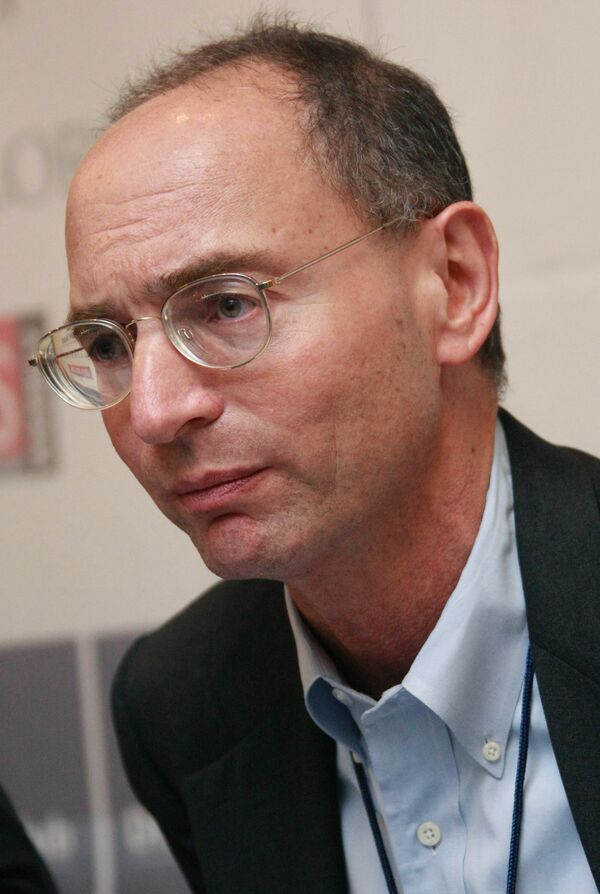RIA Novosti interview with Clifford Kupchan, Director, Europe and Eurasia, at the Eurasia Group
Question: Which topics from your point of view should be discussed this fall and particularly during the Valdai forum?
Answer: Key issues for discussion can usefully be grouped into three categories: political-military, political-economic, and the overall nature of Russia’s relations with the West.
The most contentious issues, and the ones deserving intensive discussion at Valdai, lie in the political-military realm. Issues pertaining to Russia’s neighborhood, or the “near abroad,” were a significant thorn in Russia’s relations with the West throughout the Bush Administration and could threaten the current process of “reset.” Russian elites consider the near abroad as a sphere of privileged interest, while successive US administrations have supported the sovereignty and territorial integrity of all Eurasian states. Academics at Valdai should explore exactly what Russia means by “sphere of interest,” and analysts and officials in Russia and the West should work to bridge the gap in how the region is viewed by each side.
Continuing on the political-military front, NATO enlargement is a top-level issue. Russian elites have drawn a red-line at Georgian and Ukrainian entry into NATO, while the US and the West insist on the right of any country to move toward eventual membership. Western and Russian participants at Valdai should discuss their views of Obama Administration policy on this issue, and explore whether tensions are likely to remain acute. Relatedly, US-Georgian relations are sensitive in Moscow; Russian participants could usefully spell out the Russian view at Valdai. Also, strategic nuclear issues need attention. Some progress was made on ballistic missile defense at the July summit when the sides agreed to a joint threat assessment. Is a compromise on the horizon? And is there really a “nuclear reset?” Regarding a START follow-on treaty, the sides differ on an allowable number of launchers – and even if a new Treaty is signed, there is no clear longer-term US-Russian agenda on nuclear matters.
Regarding European security, Russia is pressing for a new European security treaty. Many Western analysts are unclear on exactly what Russia is proposing, and this should be clarified in our discussions. Russia is assisting US efforts in Afghanistan – can this cooperation be enhanced, and why has Russia been especially helpful on this issue? Finally, the US and the West are looking for Russian help in solving the Iran standoff. At Valdai, we should discuss how Russia can help in engaging Iran, and whether Russia will support “crippling sanctions” on Iran if engagement fails. Finally, proliferation of WMD presents an unprecedented challenge, and participants should discuss how the West and Russia can work together on the issue
Question: What do you think should be discussed in regard to economic issues?
Answer: Turning to political-economic issues, Russian elites have long stressed the need for energy security and reciprocity in their dealings with Europe. At Valdai, Russian participants can usefully review the progress Moscow has made on this policy, and European discussants should offer their views of the energy relationship. Russian and Western views of the G20 process merit discussion – to what extent do Russian elites view global, cooperative measures as a solution to the financial crisis, and what will be Russian goals in Pittsburgh? Also, how does Moscow view the WTO accession process? Specifically, what is the relationship between Russia’s application and that of Kazakhstan and Belarus, and what are the key constituencies that support and oppose accession?
The last, but crucial issue is that of Russian-Western trust. Trust has eroded over the past nine years, and without it a meaningful “reset” is impossible. Some Russian elites view the Obama Administration as truly different – having shown more transparency and a willingness to consult with Russia before taking decisions. But how are Russian views of President Obama evolving, and will he be viewed as different enough that a fundamentally improved US-Russian relationship over the long-term becomes possible? Regarding US and Western ability to better trust Russia, participants at Valdai should convey their current image of Russian elites, and how that image is changing. Russian domestic politics has been a continuous irritant, especially in US-Russian relations. How will Moscow’s domestic policies affect the relationship during the Obama Presidency?
In the final analysis, much rests on the sides’ ability to restore trust. The Cold War as we knew it is over – but are we headed to a cold peace or a warm peace? Some new challenges, such as the near abroad, will divide the sides – our ability to manage these issues will depend on a degree of trust. Building trust should be a main topic of discussion at Valdai.
Clifford Kupchan is Director, Europe and Eurasia, at the Eurasia Group
Clifford Kupchan: Building trust should be a main topic of discussion at Valdai

© RIA Novosti . Mikhail Fomichev
/ Subscribe
RIA Novosti interview with Clifford Kupchan, Director, Europe and Eurasia, at the Eurasia Group


